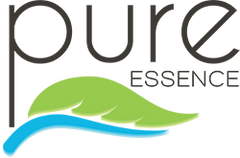Vitamin D is actually not strictly a vitamin but rather a hormone which is synthesized in different areas in the body of mammals after exposure to the ultra violet rays of sunlight.
While our bodies can make Vitamin D, getting enough “D” in modern life is not as easy as some may think. While you can obtain sufficient vitamin D from natural food sources alone, it is difficult. Eating three ounces of cooked salmon provides about 500 IU of vitamin D. That is 1/10th of the current FDA suggested recommended daily allowance, so you would have to eat a lot of salmon while sun tanning (in my case burning) in order to get enough Vitamin D for prevention and health. In some groups, dietary supplements might be required to meet the daily needs.
You May Not Be Getting Enough If:
- You have darker skin. The darker your skin the more sun exposure you need to produce the same level of vitamin D as someone with fair-skin.
- People who spend a lot of time indoors during the daytime. For example, if you are housebound, work nights or are in hospital for a long time.
- People who cover their skin all of the time by wearing sunscreen or if your skin is covered with clothing most of the time.
- People who live north of 37 degrees in the United States and Canada outside of the summer months (and 37 degrees south of the equator during the winter) This is due to the angle of the sun and number hours of overhead sunlight.
- Older adults are at increased risk in part because, as they age, skin does not synthesize vitamin D as efficiently, and they are likely to spend more time indoors, and may have inadequate intakes of the vitamin.
- Babies and infants who are breastfed and aren’t receiving vitamin D supplement directly or whose mother isn’t taking supplementation. (The vitamin D content of human milk is related to the mother’s vitamin D status).
- Pregnant women (see above).
- People with inflammatory bowel disease and other conditions causing fat malabsorption is associated with a variety of medical conditions, including some forms of liver disease, cystic fibrosis, celiac disease, and Crohn’s disease, as well as ulcerative colitis when the terminal ileum is inflamed. Because vitamin D is a fat-soluble vitamin, its absorption depends on the gut’s ability to absorb dietary fat. Individuals who have a reduced ability to absorb dietary fat may require vitamin D supplementation. In addition, people with some of these conditions might have lower intakes of certain foods, such as dairy products fortified with vitamin D.
- People who are very overweight (obese). Obesity does not affect skin’s capacity to synthesize vitamin D, but greater levels of subcutaneous fat sequester more of the vitamin and impact release into the circulation. Individuals who have undergone gastric bypass surgery may become deficient in vitamin D as the section of the upper small intestine where vitamin D is absorbed is bypassed and vitamin D mobilized into the serum from fat stores may not compensate.
- People with limited sun exposure. Homebound individuals and those who are in hospital or long term care, women who wear long robes and head coverings for religious reasons, and people with occupations that limit sun exposure are unlikely to obtain adequate vitamin D from sunlight.
- People who adhere to a restricted diet due to allergies and intolerance, poor eating habits, religious restrictions.
The Vitamin D Council currently recommends a dose of 5,000 IU/day.
 We have all heard that the ‘Sunshine’ vitamin plays a critical role in bone health, but Vitamin D also supports other functions in the body: the immune system, muscle and organ function (including heart and lung) the circulatory system (including production of new blood cells), brain development, and is believed to provide some anticancer benefits. Not only does vitamin D work for prevention, but it may also help relieve the symptoms of other diseases and conditions such as Type 1 and Type 2 diabetes, asthma, some auto immune diseases, as well as being though to help with depression.
We have all heard that the ‘Sunshine’ vitamin plays a critical role in bone health, but Vitamin D also supports other functions in the body: the immune system, muscle and organ function (including heart and lung) the circulatory system (including production of new blood cells), brain development, and is believed to provide some anticancer benefits. Not only does vitamin D work for prevention, but it may also help relieve the symptoms of other diseases and conditions such as Type 1 and Type 2 diabetes, asthma, some auto immune diseases, as well as being though to help with depression.
Written by: Laine Dakin-Salomonson
Two Vitamin D Supplements You Should Consider Adding to Your Routine
Ionic-Fizz™ Super D-K Calcium Plus™ is the perfect blend of ionic calcium and magnesium, with vitamin D and vitamin K AND complementary nutrients that can boost bone health, including beta-carotene, vitamin C, vitamin B6, folate, vitamin B12, zinc, copper, manganese, potassium, silica, boron, and other trace elements. It is one of the most supportive bone health supplements ever offered.*
Vitamin-D 5000 IU™ is made for those who want the general health protection provided by vitamin D. Vitamin-D 5000 IU is meant for those who do not get at least 30 minutes of unblocked sun exposure each day.*
For Further Reading on Vitamin D, check out these articles:
Prostate Cancer, Nutrition, and Dietary Supplements


Comments
The author who wrote this article was paid well for efforts. This is bloody awesome!!! Saw her other one. You are most fortunate to have her on your team.
Great article! Enjoyed reading this informative article.We all need to check our Vitamin D levels.